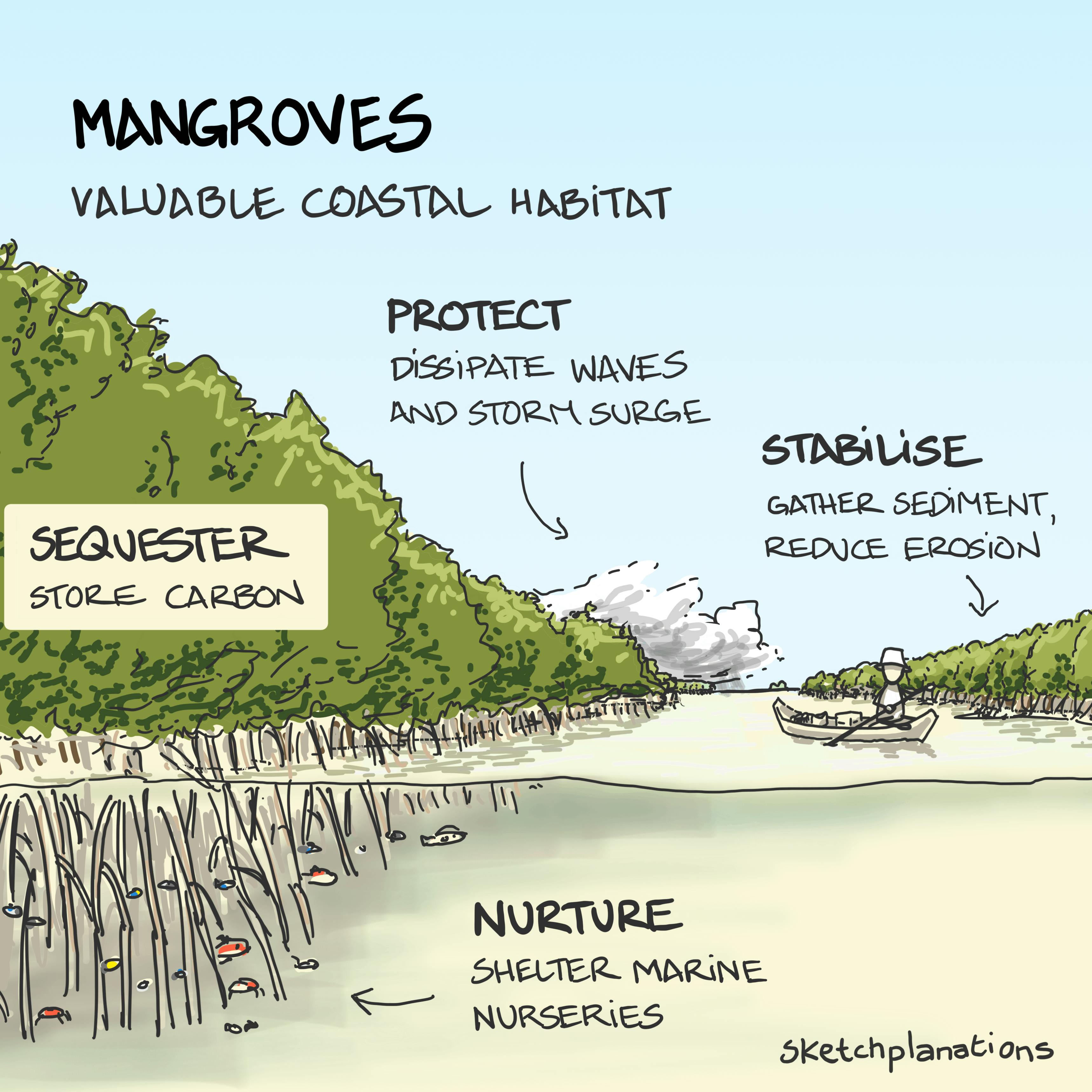Mangroves

👇 Get new sketches each week
Mangroves are many species of tree adapted to living in salty water along coastlines and tidal rivers not far from the equator. They are remarkable in many ways and confer a host of benefits to their habitats. Here are some significant ones.
Protect
Mangroves and mangrove habitats play a major role in protecting coastal settlements from storm surges and waves. Mangroves significantly reduce the energy of waves, lowering wave height inland, including from tsunamis, and reduce surges from tropical storms. We took a boat through the mangroves in Southern Vietnam once, and it was an eye-opening maze of channels and islands. I could see how they act like a natural breakwater.
Stabilise
Mangroves help stabilise land from erosion. This helps plants and fauna inland make their homes. Mangrove root systems also trap sediment brought downriver or from the sea, building their environment and creating peaty soil when they decay.
Nurture
Their incredible prop root network creates a wonderful sheltered space for marine wildlife to grow and develop. The nooks and crannies help protect young from predators until they are older and can better fend for themselves. This protective environment increases populations and helps local fishers and communities. The calm and sheltered waters inside mangrove habitats also provide sanctuary for birds and a host of other non-marine wildlife.
Sequester
Mangroves are an excellent carbon sink. They capture carbon as they grow, and the low-oxygen sediments deposited beneath them help lock carbon away.
—
I've contributed to plant trees through Eden Projects with a portion of any monthly or one-off support I receive. I wanted to explain Mangroves partly because, as of July 2023, together, we've passed 26,000 trees planted, most in mangrove restoration projects in Madagascar , and provided over 350 work days for locals.
As Eden Projects explain:
"Madagascar is one of the world's top biodiversity conservation priorities because of its endemic species and severe habitat loss rates. Restoration in Madagascar is important because the destruction of the mangrove estuaries along the coastline has caused mudflats to wash into the ocean, destroying once-productive fisheries and increasing the vulnerability of coastal communities to hurricanes, tsunamis, and floods. In the dry deciduous forests, deforestation threatens one of the world's rarest and most diverse forest systems."
Mangroves make a real difference. To everyone who's helped make this happen, thank you!

